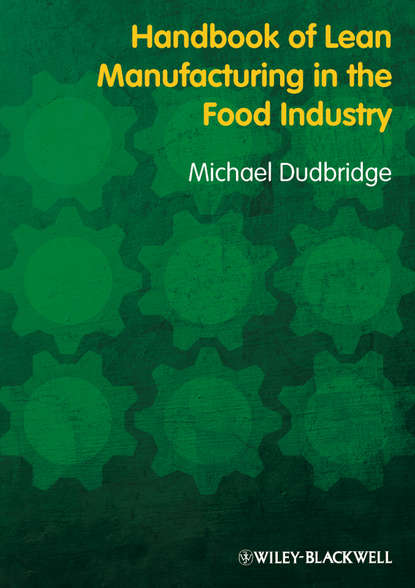
Handbook of Lean Manufacturing in the Food Industry скачать fb2
Michael Dudbridge - Handbook of Lean Manufacturing in the Food Industry краткое содержание
The principles of lean manufacturing – increasing efficiency, reducing waste, lowering costs and improving control – may be applied to any industry. However, the food industry is unique, and creates unique demands. The political, social and economic importance of food is unrivalled by any other form of produce, as is the scrutiny to which the manufacture of food is subjected. For the food industry, lean manufacturing is not simply a cost-saving strategy, but is directly linked to issues of sustainability, the environment, ethics and public accountability. Handbook of Lean Manufacturing in the Food Industry is a major new source of information and ideas for those working in food manufacturing. Offering a fresh and modern perspective on best practice, it points the way to fewer breakdowns, reduced quality faults, improved teamwork and increased profits. With a focus on operations management and new process development, the book is accessible and easy to read, and is complemented by a wealth of practical examples drawn from industry. The author’s conversational style and questioning approach will be invaluable to food manufacturers who are seeking solutions to fundamental issues. The book is directed at those who are working in food manufacturing or the wider food industry, particularly factory operations managers and training teams who are looking for resources to help with lean manufacturing implementations. Others in the supply chain, from producers to retailers, will also find it invaluable. The book is a clear and timely introduction for students and lecturers in food science and technology who want to access the reality of lean manufacturing as well as the theory.
Чтобы оставить свою оценку и/или комментарий, Вам нужно войти под своей учетной записью или зарегистрироваться



